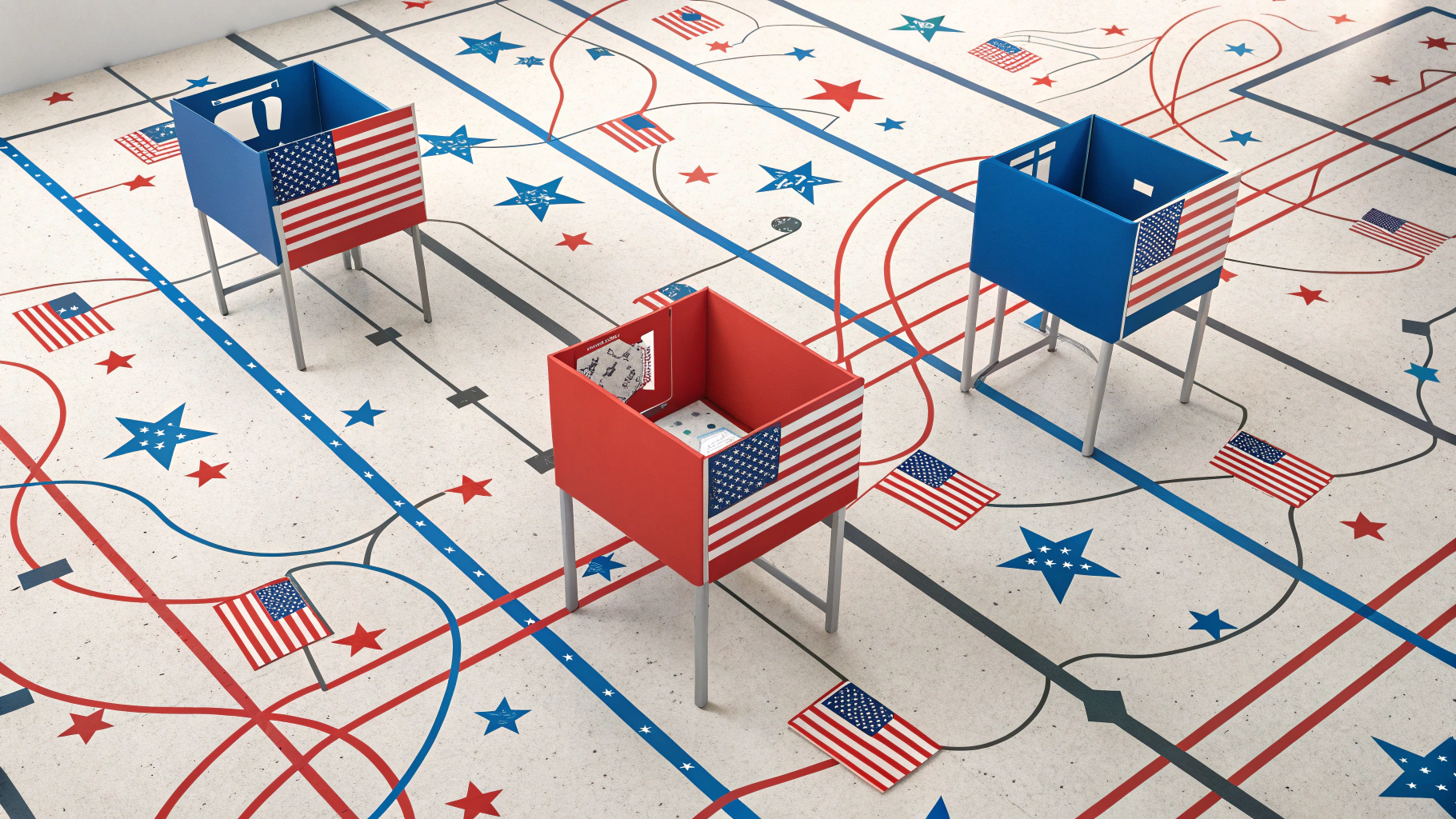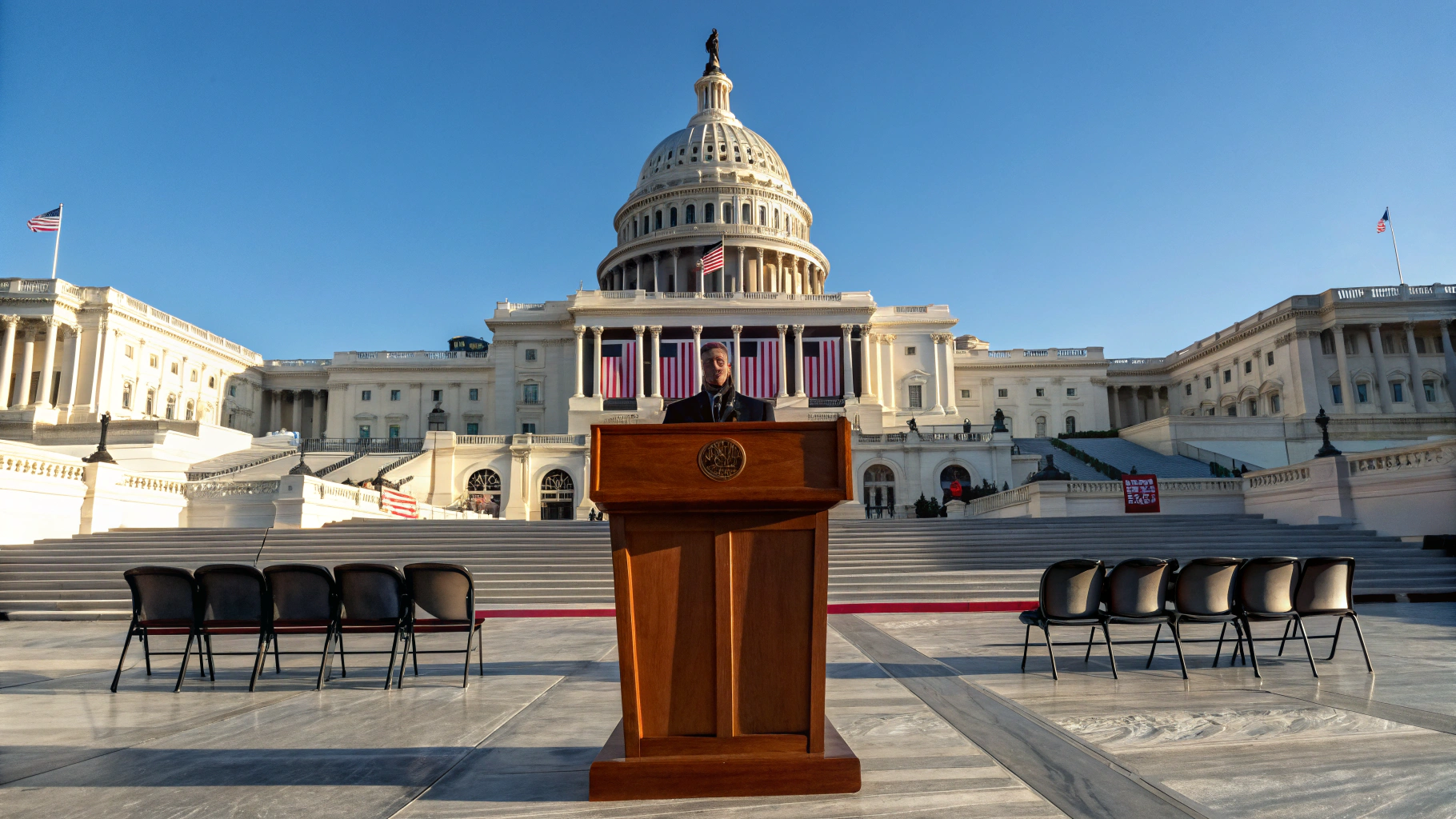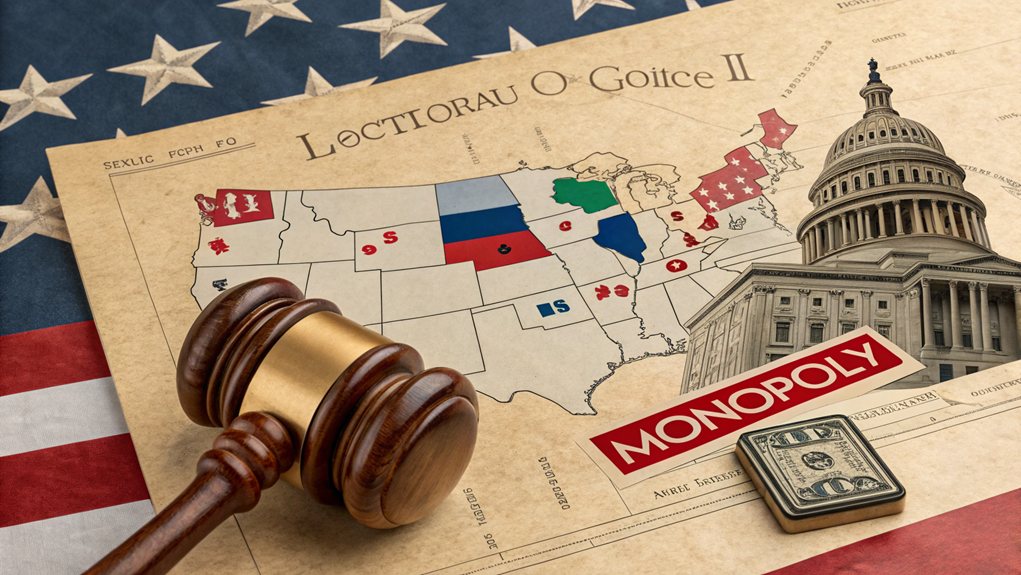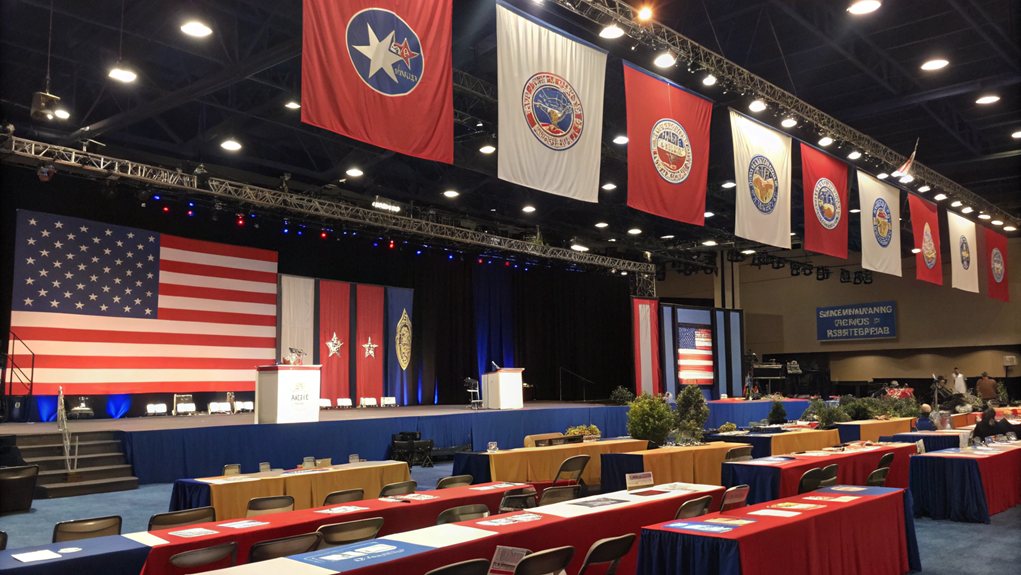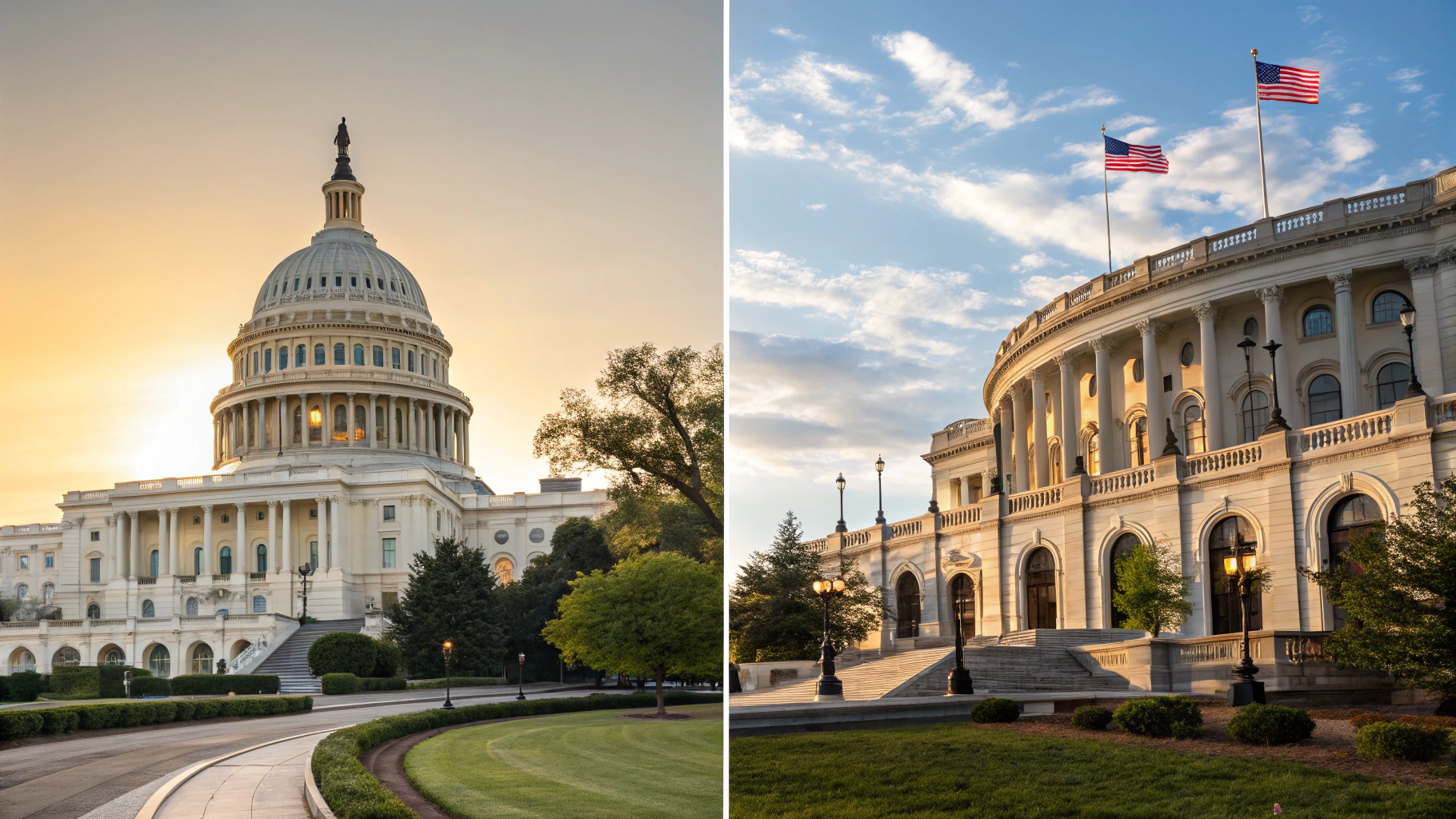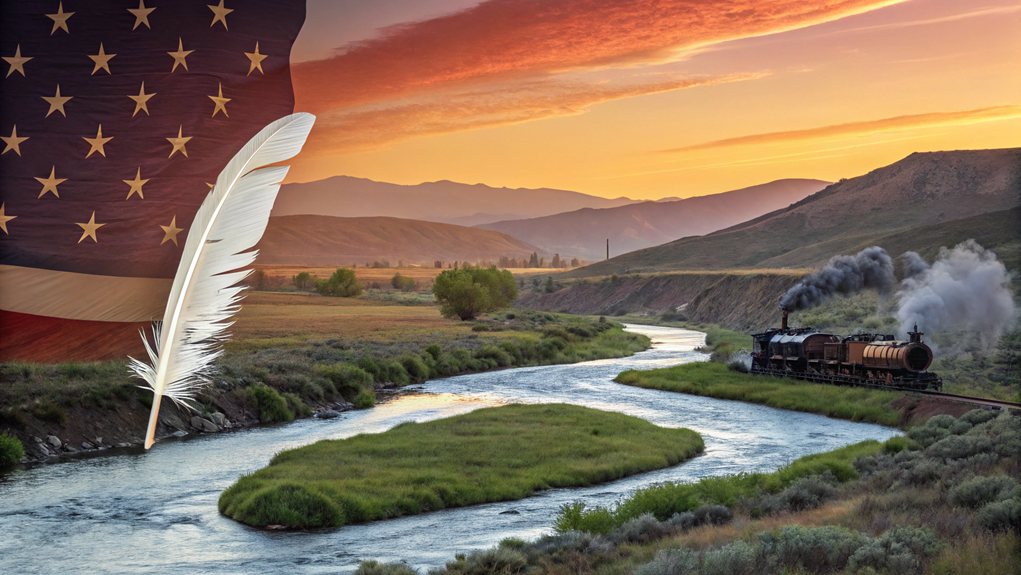The primary election process in the U.S. is a rollercoaster of state-specific quirks. Voters can either hit the polls for a primary or attend a chaotic caucus—think public debates instead of private booths. Delegates? Yeah, they're the folks who actually pick the nominees at big conventions. Some states are strict on party affiliation; others, not so much. It's all about momentum and strategy, and let's be real—it's messy. Stick around for the juicy details on what happens next.
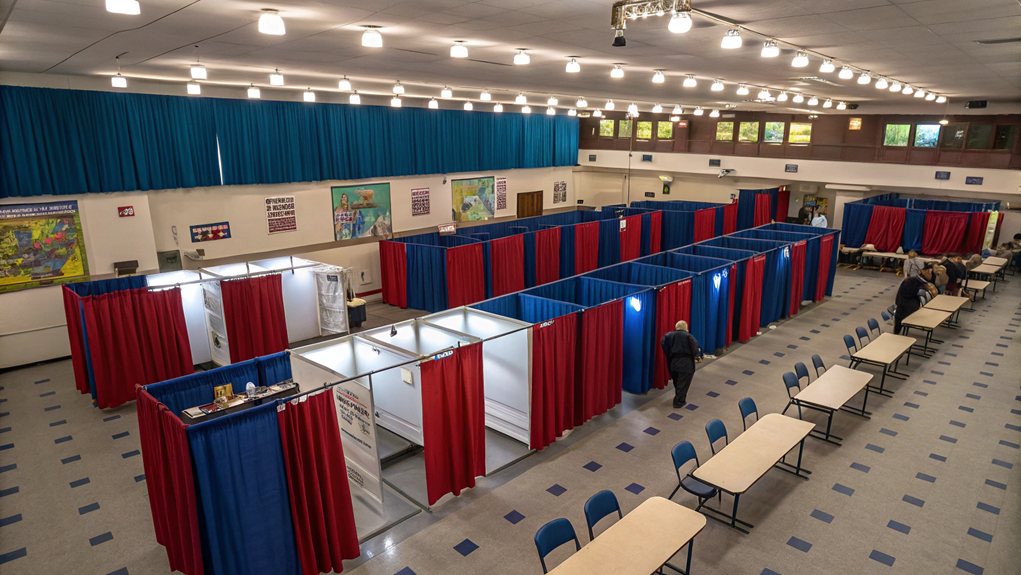
How does the primary election process work in the U.S.? Well, buckle up. In the grand circus of American politics, primary elections and caucuses are like the preliminary rounds in a boxing match. States get to choose how they want to play this game—some go for primaries, others prefer caucuses, and occasionally, they mix it up with both. But remember, the rules of the game? Totally up to the states and political parties. A primary election is a state-wide process where voters cast secret ballots, similar to a general election, and it can be either open or closed, affecting who can participate.
In primaries, voters cast secret ballots. You know, like a mini election where nobody has to know who you're rooting for. Then there are caucuses, where things get a bit more awkward. Picture a bunch of people gathered in a room, discussing candidates like they're debating the best pizza toppings. Voting? It can involve a show of hands or shouting out support publicly. Sounds fun, right?
Now, onto delegates. These folks are essential. They're the ones who head to the national conventions to officially pick the party's nominee. But here's the kicker: how delegates are assigned varies by state. Some states go for a proportional distribution, while others are all about that "winner-takes-all" mentality. It's like a high-stakes game of poker where not everyone gets a seat at the table. In fact, states determine the number of delegates allocated to each party, which can significantly influence the nomination race. Additionally, majority support from delegates is necessary for a candidate to secure the nomination, underscoring the importance of early primary results.
Delegates are the key players at national conventions, with their assignment rules varying like poker hands—some get a piece of the pie, while others go home empty-handed.
Primaries come in different flavors, from open to closed, and some states even have semi-open variations. But the blanket primaries? Yeah, those were found unconstitutional. Sorry, blanket fans.
The primary season kicks off in January or February and wraps up by mid-June. Then it's showtime at the national conventions, typically happening in the summer, right before the general election in November.
Voter participation is essential. Registration requirements vary widely. Some states demand party affiliation; others are a bit more relaxed. And let's not even start on voter turnout. It's like a rollercoaster—highs, lows, and the occasional scream.
Ultimately, the primary election process is a chaotic dance of rules and regulations, but it sets the stage for the main event: the general election.
Frequently Asked Questions
What Is the Difference Between a Primary and a General Election?
Primaries and general elections? Totally different beasts.
Primaries are like a private club—only certain voters get to pick their party's nominee.
Meanwhile, general elections? That's the big show, where everyone gets to vote for whoever they want, regardless of party affiliation.
It's the ultimate test of popularity.
So, one shapes party candidates, the other decides who gets to run the country.
Simple, right? Or is it just politics being politics?
How Are Delegates Allocated in the Primary Election?
Delegates in the primary election? It's a circus.
Some states play nice, sharing delegates based on the votes each candidate gets. Others? They're all about that winner-takes-all vibe. You win big, you get everything.
Then there's the threshold method—if you don't hit a magic number, tough luck.
Oh, and let's not forget those unpledged delegates who can do whatever they want. It's a wild game of strategy, politics, and drama.
Can Independent Voters Participate in Primaries?
Independent voters? Good luck! In many states, they're shut out of primaries, left watching from the sidelines.
Closed primaries mean only party members get to play. Over 27 million independents are excluded from presidential primaries alone. That's a whole lot of frustration.
Many feel neither major party speaks for them. It's unfair, right?
There's chatter about reform, like open or nonpartisan primaries. But for now, independents are largely sidelined.
What Happens if No Candidate Receives Enough Votes?
If no candidate can muster enough votes, things get spicy. A runoff election usually follows, pitting the top contenders against each other.
It's like a second chance, but not always welcomed. Some states have thresholds—hit that magic number or face another round.
If not, the top candidates might just waltz into the general election anyway. Rules vary by state; it's a real choose-your-own-adventure.
Just another day in the chaotic world of elections!
How Do Primary Elections Differ by State?
Primary elections are a mixed bag across states. Some are open, letting anyone play. Others? Closed off tighter than a drum.
Texas and Florida? They hog all the delegates, while New Hampshire and Iowa strut their stuff early in the season.
Then there's California with its quirky Top Two system. Delegate allocation methods differ too.
It's a wild ride, and honestly, if you blink, you might miss the chaos. Welcome to democracy!
